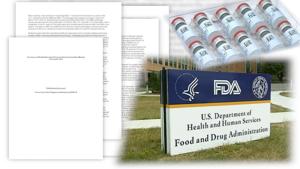
SPOKANE, Wash. (AP) — Two farm groups are suing the state of Washington for failing to revise emergency regulations that seek to protect migrant farmworkers from the COVID-19 virus.
The groups filed the lawsuit Tuesday in Yakima County Superior Court. It seeks to invalidate the recently renewed rules as arbitrary, capricious and not feasible.
“We’re disappointed we had to take this step, but our farms are on the line and we had no other choice,” said John Stuhlmiller, chief executive officer of the Washington Farm Bureau.
The state Department of Health renewed the emergency rules, first adopted last spring, for the third time on Jan. 8. In addition, Gov. Jay Inslee last month rejected the two groups’ request to repeal and revise the rules.
The Department of Health didn’t immediately respond to a request for comment.
The lawsuit, against the Department of Health and the Department of Labor & Industries, contends many of the state’s emergency regulations for farmers are unworkable. The state has made adjustments for other sectors, including schools and construction, that incorporate improved understanding of COVID-19 transmission and best practices. But the rules governing migrant farmworkers have remained the same.
Tens of thousands of migrant farmworkers toil in Washington fields starting in the spring to harvest crops such as apples, cherries, hops, grapes and asparagus.
The United Farm Workers union, which pushed for the emergency rules last year, will work to defend them, said Elizabeth Strater of the union.
“Given that vaccination programs are not yet working to scale, and would take two shots a month apart to provide protection, this is not a viable alternative to safe COVID-19 housing protocols,” she said. “Eliminating or disregarding basic COVID-19 rules will infect and kill workers.”
One point of dispute is the state requirement for farmers to provide twice-daily medical visits to farm workers with COVID-19 symptoms. Health care professionals in rural and isolated communities, who are currently being called upon to administer vaccinations, are not able to provide this level of care, the lawsuit said.
No other industry has this requirement, the plaintiffs said.
“We want farm workers to get the medical care they need. But doctors – not the state – should direct the appropriate level of care,” Stuhlmiller said.
The lawsuit also contended that:
—Requiring 20-minute access to emergency services and one hour access to an emergency room with a ventilator is largely impossible in many rural and isolated areas.
—Restricting occupancy of registered farmworker housing even after workers have been vaccinated is not based on science and is economically ruinous for farmers by limiting their workforce to 50 percent. “Farmers cannot stay in business if they can only employ and house half their workforce even after they are vaccinated,” said plaintiff Dan Fazio, executive director of wafla, which represents employers of seasonal workers around the country.
Farmers face steep financial penalties for not meeting these regulations, the lawsuit said.
This year, about 25,000 guest workers will arrive in Washington state to harvest crops and then return to their home countries as part of the annual H-2A guest worker program.



